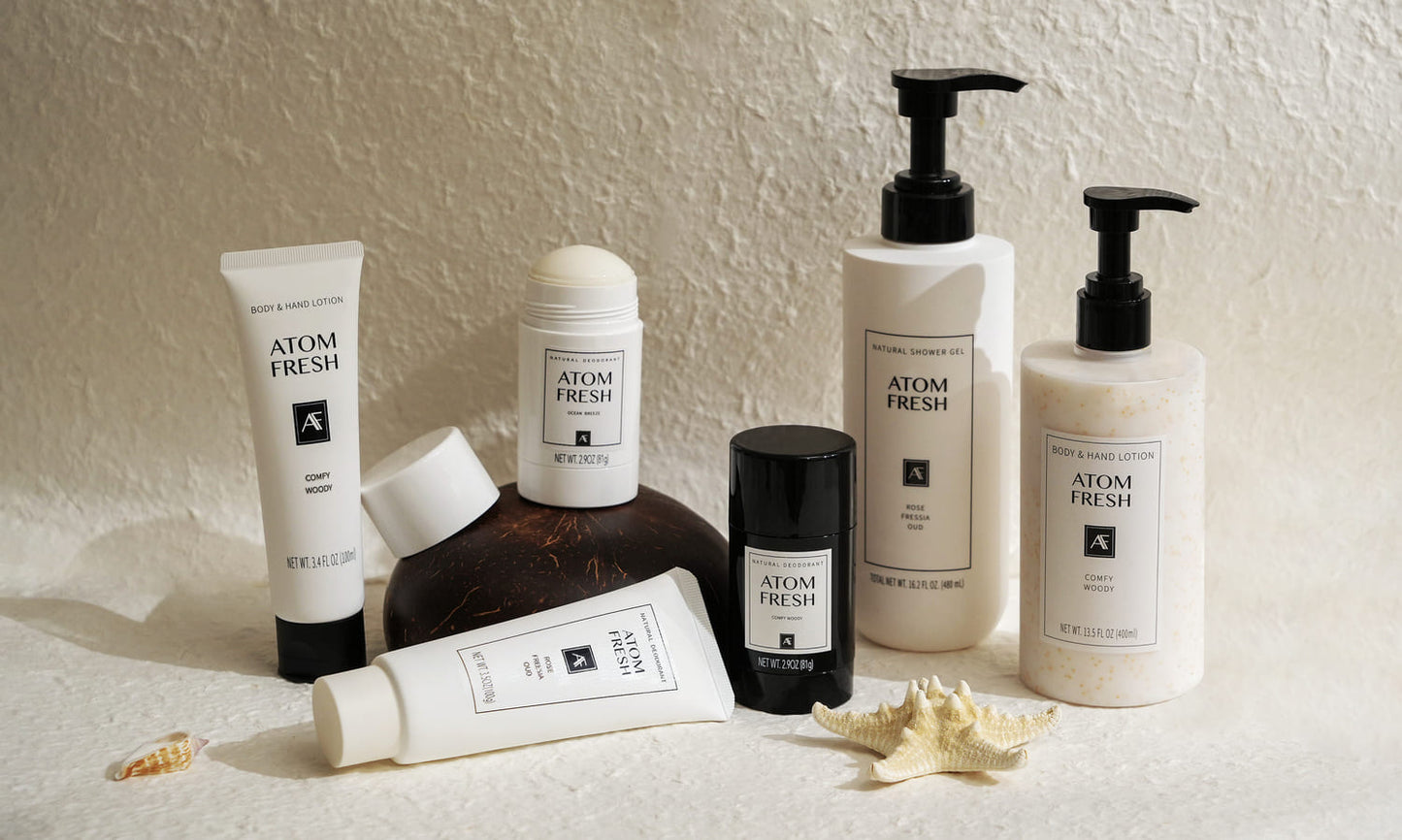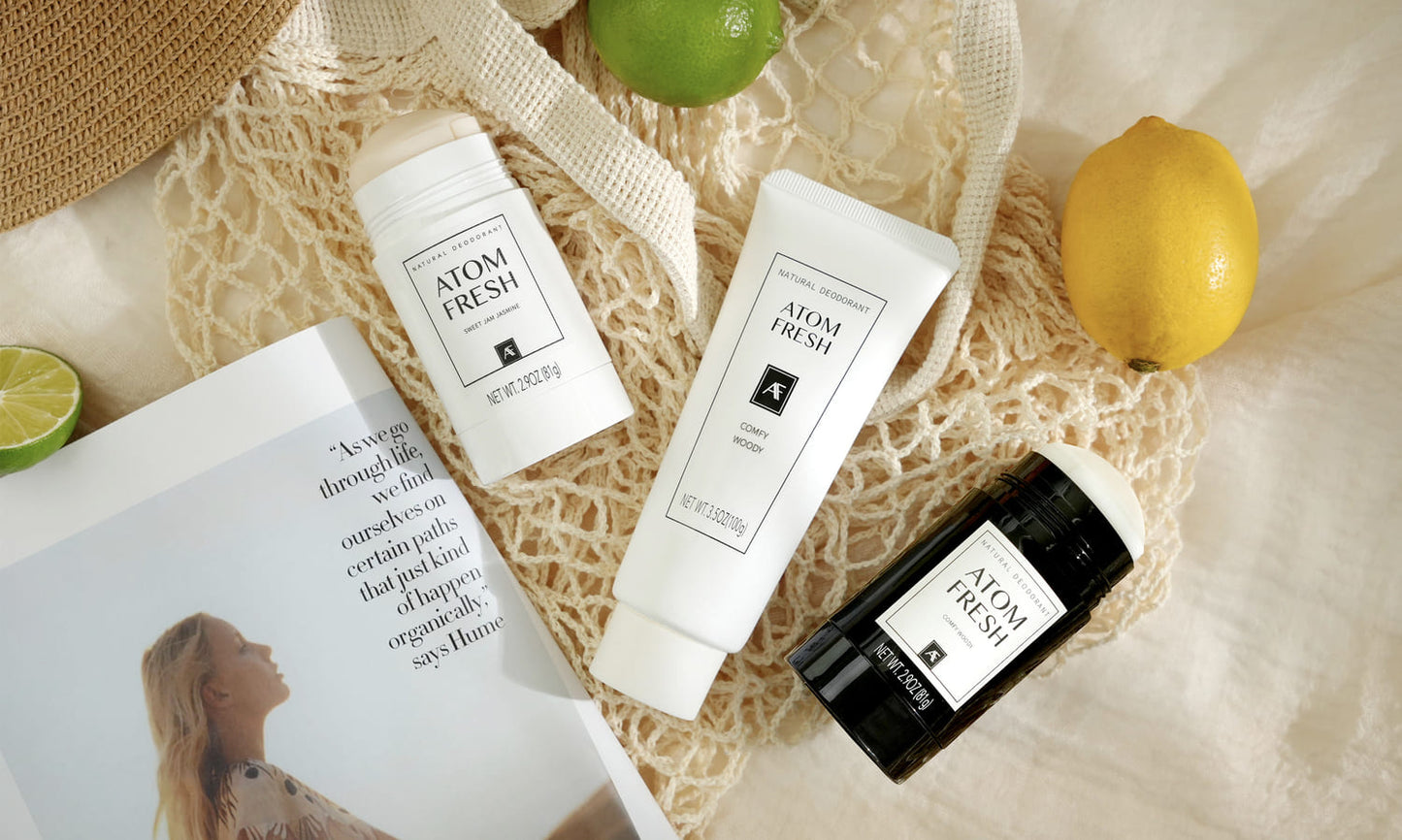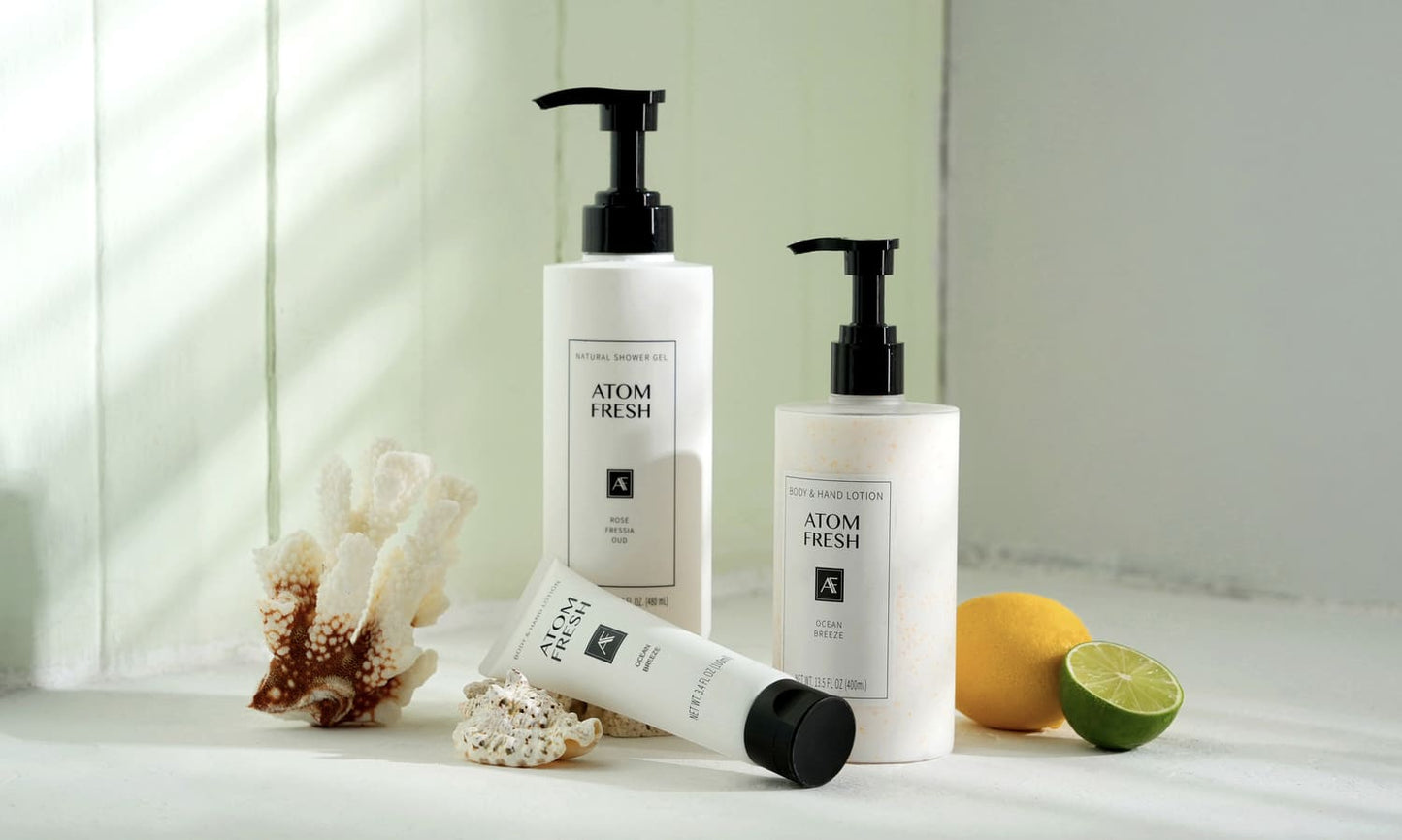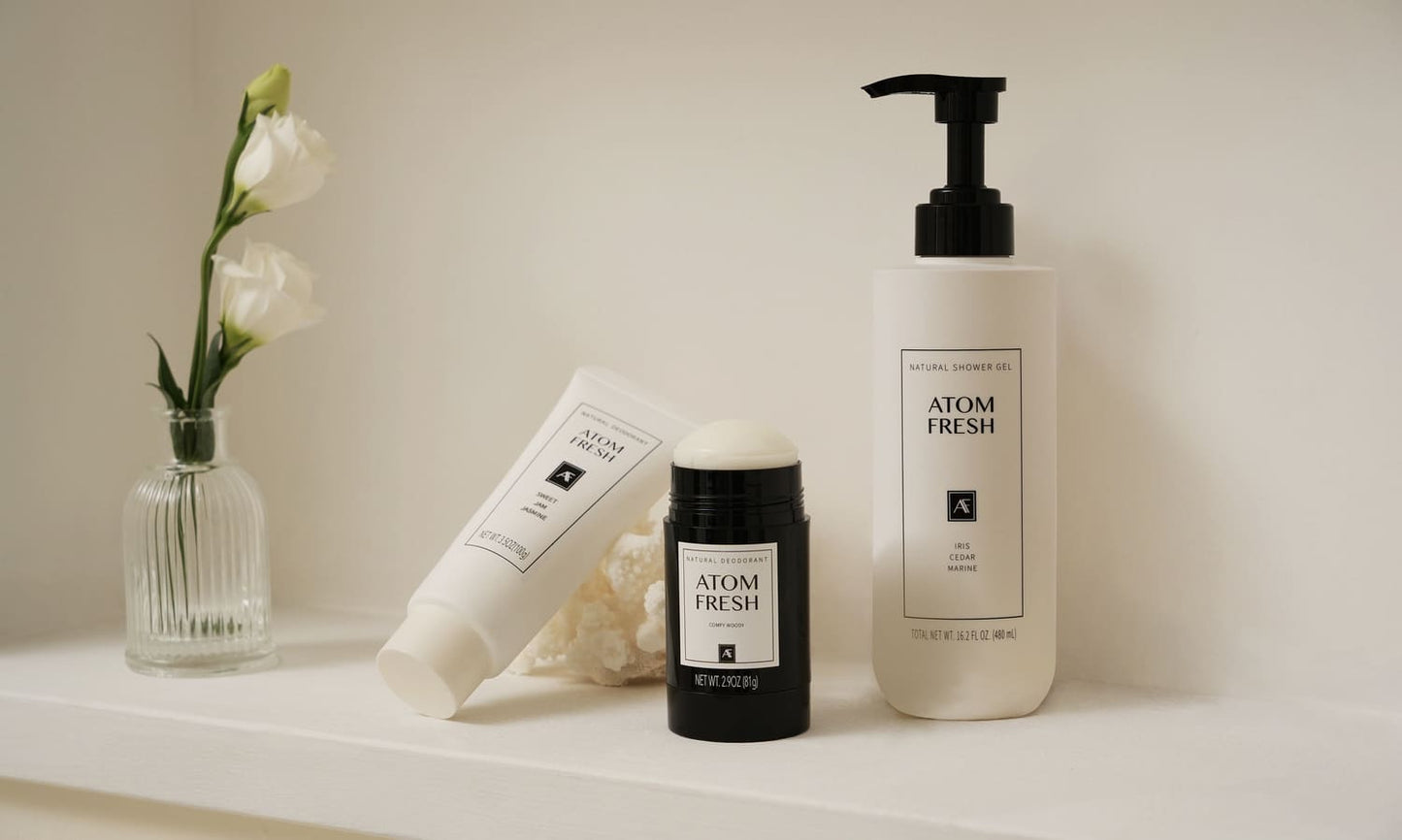Understanding the Basics
What Is a Perfume?
Types of Perfume (EDT, EDP, Parfum)
Perfume is all about scent. It’s a blend of fragrant essential oils or aroma compounds, fixatives, and solvents. Depending on the concentration, you’ll find eau de toilette (EDT), eau de parfum (EDP), or pure parfum—each with increasing strength and longevity.
How It’s Made
Most perfumes are alcohol-based, carrying synthetic or natural fragrances that evaporate into the air. That’s what gives perfume its strong scent—plus the staying power for hours.
What Is a Deodorant?
How Deodorant Works
Unlike perfume, deodorant is functional. It neutralizes the bacteria that cause odor when you sweat, especially in areas like your armpits. It doesn't stop sweat—that's antiperspirant’s job—but it keeps you smelling clean and fresh.
Deodorant vs Antiperspirant
Here’s the deal: deodorants deal with odor, while antiperspirants block sweat with aluminum. More people today are switching to aluminum-free formulas due to concerns over irritation and health risks.
Purpose: Fragrance vs Functionality
Why People Wear Perfume
Perfume is emotional. It creates identity, enhances mood, and even influences attraction. Think of it as your aromatic fingerprint.
Why People Use Deodorant
Deodorant is practical. It’s about hygiene, confidence, and comfort—especially during workouts, commutes, or high-stress meetings.
Can You Use Both?
Absolutely. Use deodorant on underarms and perfume on pulse points. They serve different functions and complement each other when chosen wisely.
Ingredient Breakdown
Common Ingredients in Perfume
Natural vs Synthetic Fragrance
Perfumes often include hundreds of chemicals—some are naturally derived, others are synthetic. Some synthetics can trigger allergies, which is why clean-beauty alternatives are rising.
Alcohol Content and Skin Sensitivity
Alcohol helps perfume disperse but can dry or irritate skin. Spraying it directly after shaving? Big no-no.
Common Ingredients in Deodorant
Baking Soda, Zinc, and Kaolin Clay
Modern natural deodorants use ingredients like zinc oxide to neutralize odor, clays to absorb moisture, and botanical extracts to soothe skin.
Fragrance-Free and Sensitive Skin Options
Fragrance-free deodorants are perfect for sensitive users or scent-restricted spaces. Look for formulas free from phthalates, alcohol, and aluminum.
How They Affect Your Skin and Health
Perfume and Skin Irritation
Allergens in Fragrance
According to the American Academy of Dermatology, fragrance is one of the top five allergens in cosmetic products. Always patch test first.
Deodorant and Your Microbiome
Natural Deodorants Support Healthy Bacteria
Unlike antiperspirants that clog pores, deodorants—especially natural ones—can help maintain a healthy underarm microbiome.
Antiperspirants and Aluminum Concerns
What Experts Say
The FDA deems aluminum safe in small quantities, but organizations like the EWG urge caution, especially for sensitive individuals or daily users. Hence, the rise of clean alternatives like AtomFresh.
Application & Wearability
Where to Apply Perfume
Focus on pulse points: wrists, neck, behind the ears. Don't rub it in—just dab and let it dry.
How to Use Deodorant
Apply to clean, dry underarms. Reapply as needed during hot days or post-workout.
Longevity Comparison
Perfumes last 4–8 hours depending on concentration. Deodorants last 24–72 hours based on formulation and activity levels.
Smell vs Sweat: Can Fragrance Mask Odor?
Why Perfume Can’t Replace Deodorant
Perfume might cover odor briefly, but it won’t neutralize the bacteria causing it. Worse, it can mix with sweat and create an unpleasant combo.
Why Using Both Makes Sense
Layering light, skin-friendly deodorant with your favorite scent = best of both worlds.
Clean Beauty Movement: Where Does Each Stand?
Non-Toxic Fragrance Trend
Consumers are pushing back against mystery chemicals. Brands now disclose scent sources and offer EWG-rated safe products.
Natural Deodorant’s Rise
Google searches for “aluminum-free deodorant” have more than doubled since 2021. Users seek safer, transparent alternatives—enter AtomFresh.
Editor Picks from AtomFresh
AtomFresh Natural Deodorant Balm
No aluminum. No baking soda. Just long-lasting, skin-soothing freshness made for all genders and skin types.
AtomFresh Cream Deodorant
Rich, creamy texture glides on smooth. With zinc oxide and chamomile extract, it’s perfect post-shower or post-gym.
AtomFresh Body Wash
pH-balanced and sulfate-free, this body wash sets your skin up for success before you layer on any scent.
Real-World Case: Workplace Scent Sensitivities
Canada’s “Scent-Free” Policy
Some Canadian workplaces banned perfumes to protect people with asthma or scent-triggered migraines. This has pushed consumers toward unscented or naturally scented deodorants.
Deodorant Becomes the Default
In scent-restricted environments, a natural, low-profile deodorant like AtomFresh can be the perfect compromise.
Environmental Impact
Perfume and VOCs
Perfume sprays release volatile organic compounds (VOCs), contributing to indoor air pollution. Aerosol deodorants do the same—opt for creams or balms instead.
Sustainable Packaging
Brands like AtomFresh offer recyclable, plastic-free, or compostable packaging to reduce beauty’s carbon footprint.
What Dermatologists Recommend
When to Go Fragrance-Free
If you have eczema, psoriasis, or sensitive skin, skip traditional perfumes and use unscented body products.
Safe Scent Layering
Layer unscented deodorant + natural fragrance oil = subtle, long-lasting, skin-friendly aroma.
Final Verdict: Which One Do You Really Need?
You probably need both—but in smarter, cleaner forms. Perfume is great for personal scent identity. Deodorant? It’s your hygiene hero. Choose each with purpose—and always read the label.
FAQs
Can I use perfume instead of deodorant?
No. Perfume doesn’t prevent odor; it only masks it. Deodorant addresses the root cause—bacteria.
Does natural deodorant have a scent?
Yes. AtomFresh uses safe, phthalate-free natural fragrances like jasmine, rose, and neroli.
Will deodorant stain clothes like perfume?
Most natural deodorants don’t. AtomFresh’s formula dries clear and is designed to be fabric-friendly.
What should I avoid if I have sensitive skin?
Skip artificial fragrances, parabens, and aluminum. Stick with non-irritating formulas like those from AtomFresh.
What if I sweat a lot and still want to smell great?
Layering works: start with a high-performance deodorant, then a light fragrance on your clothes or hair—not your underarms.
References
- American Academy of Dermatology on Fragrance Allergies
- EWG Skin Deep Database
- FDA: Fragrance in Cosmetics
- AtomFresh Official Site






